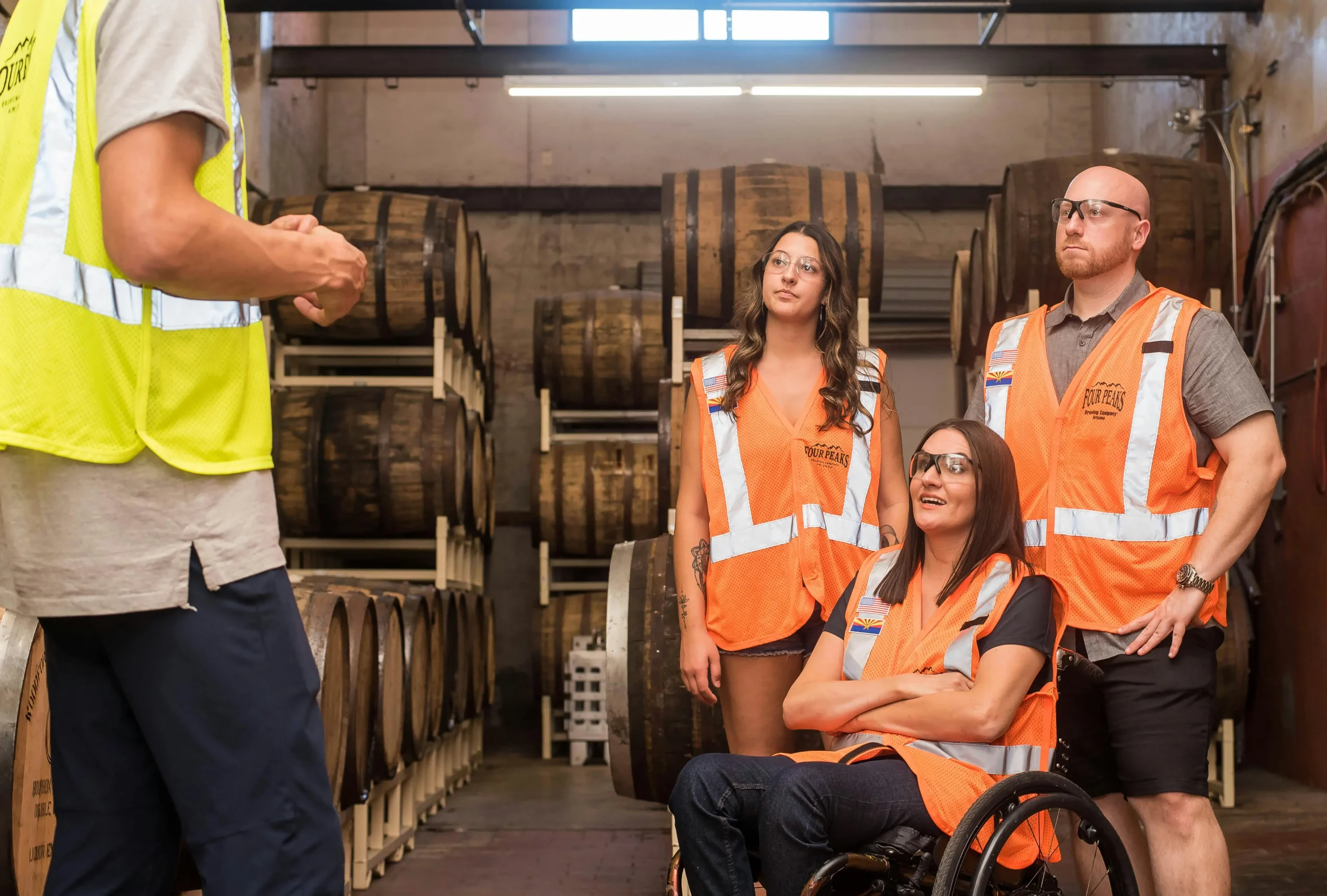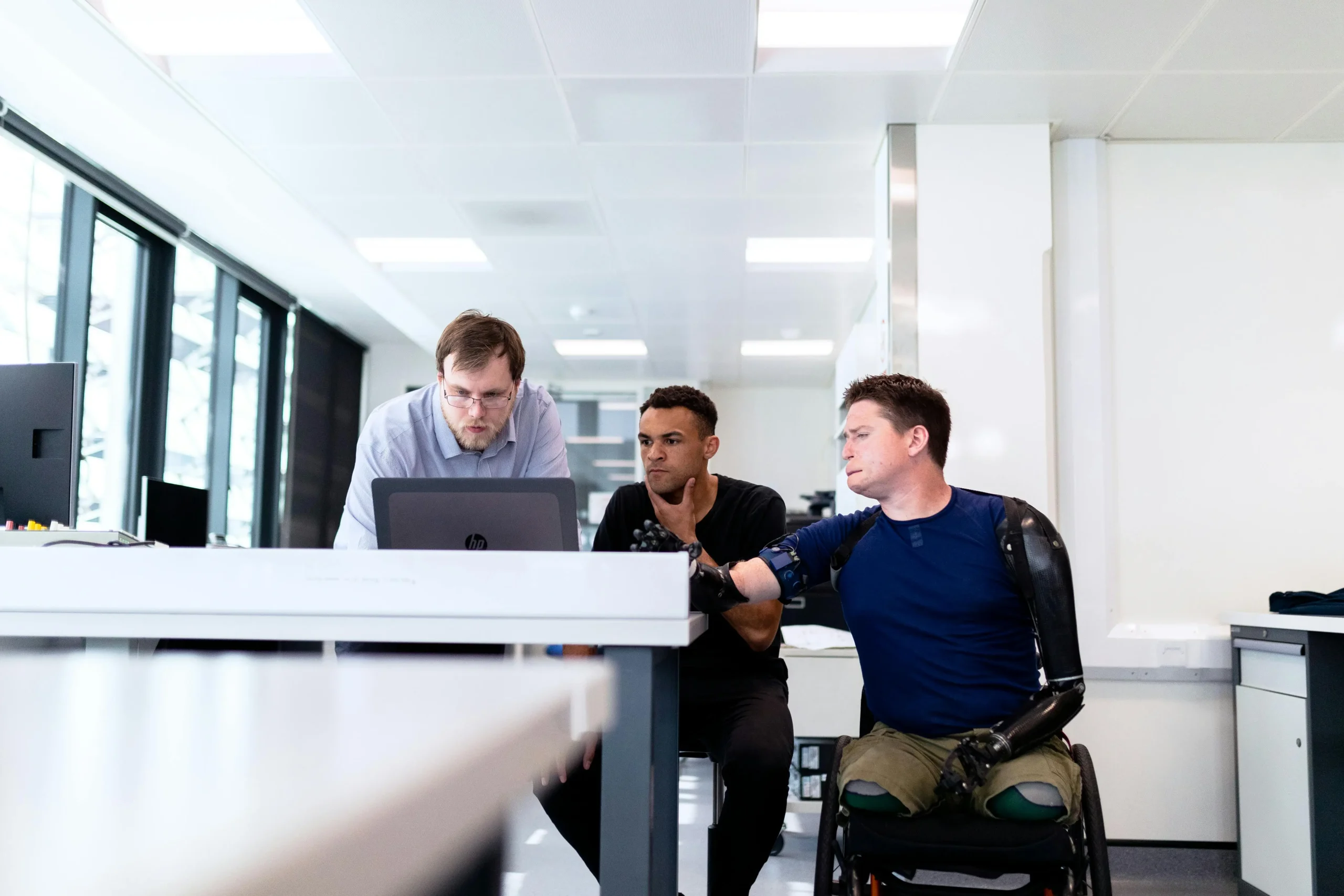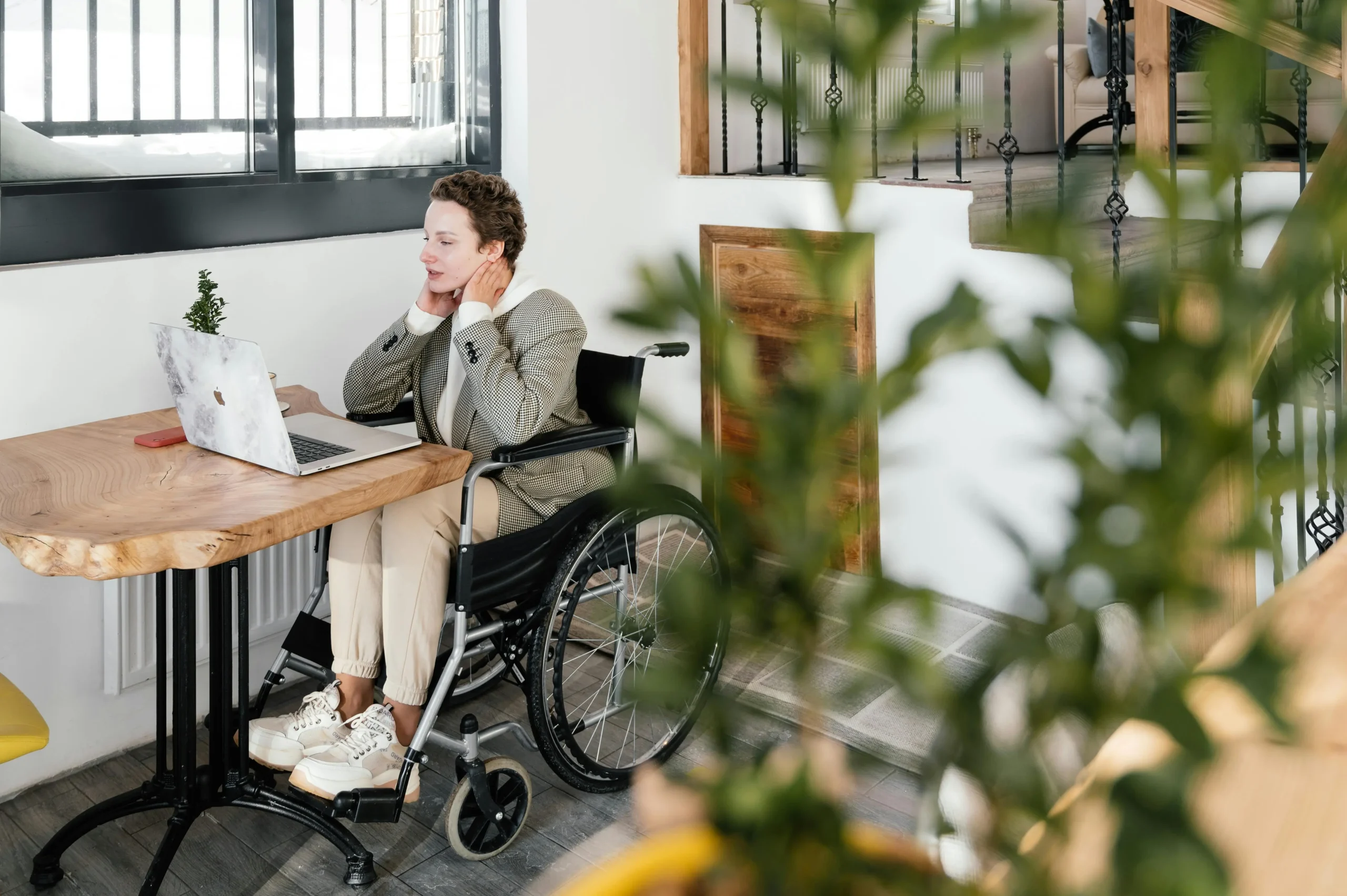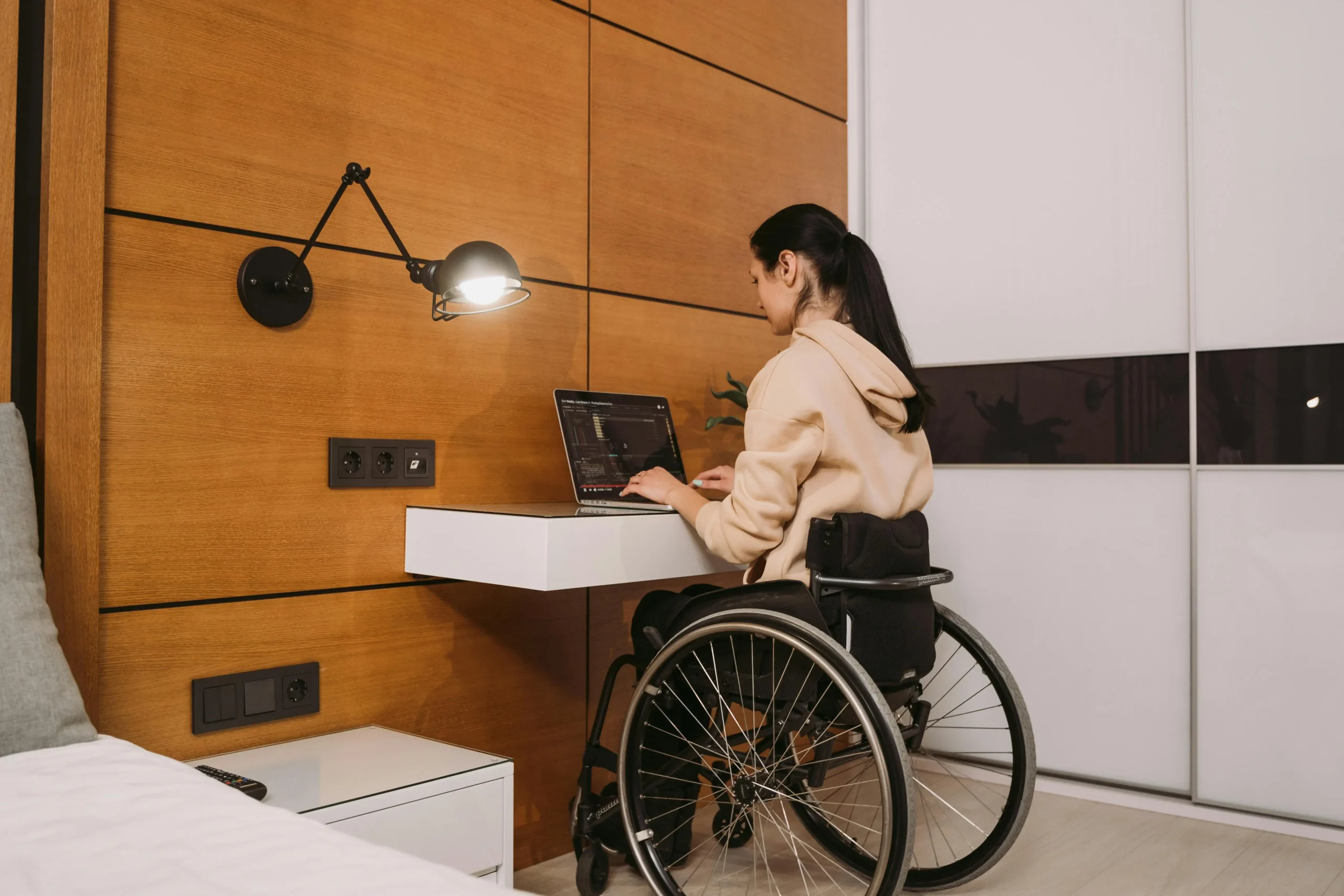Jobs for People with Disability: How to Choose the Best One for You
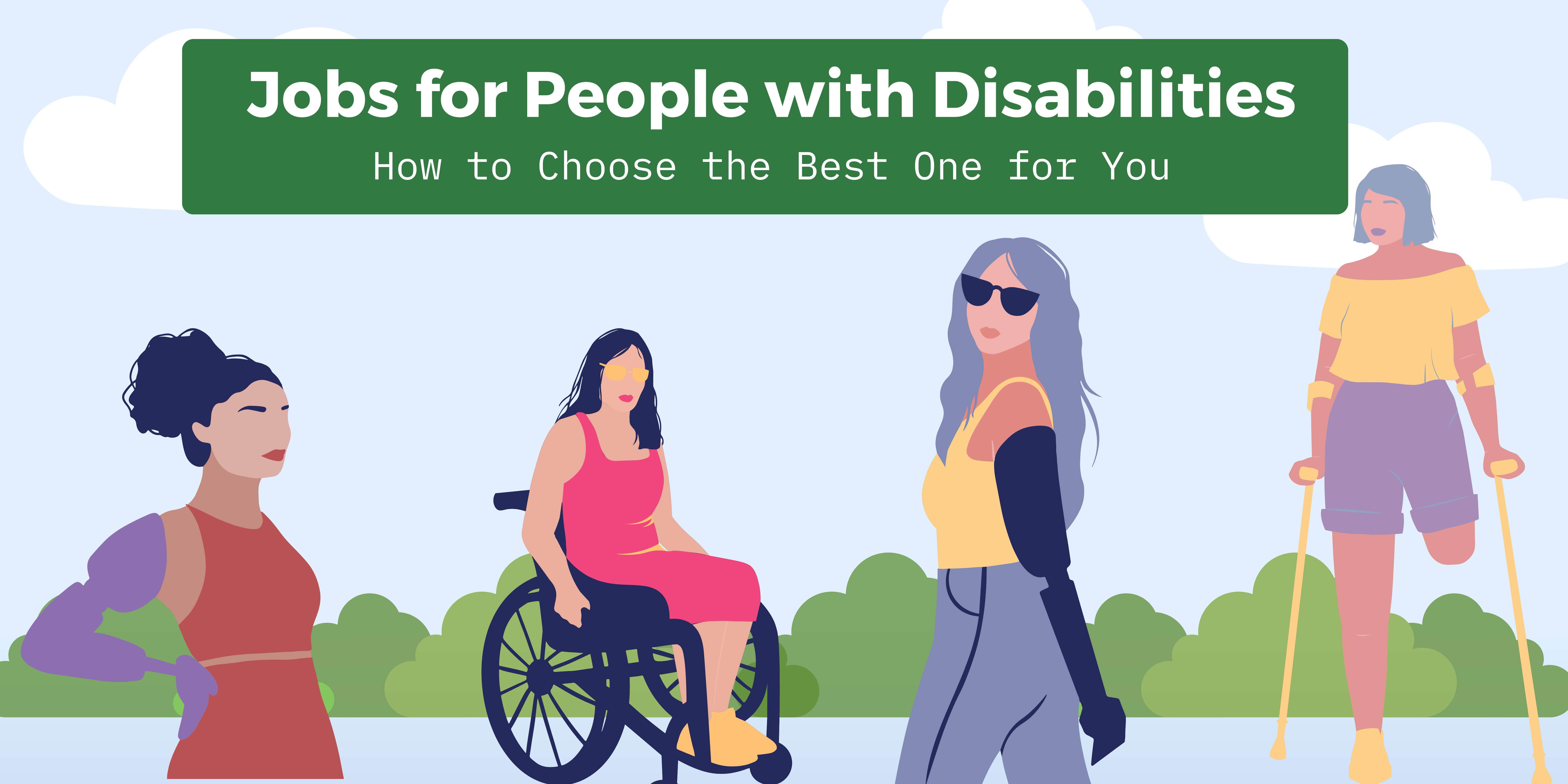
People with disabilities often face significant challenges when it comes to finding and keeping a job. Despite the fact that they possess unique skills, talents, and qualifications, individuals with disabilities still encounter barriers in the workplace due to misconceptions and stereotypes.
In recent years, there has been an increasing push for inclusivity and diversity in the workforce, leading to more opportunities for people with disabilities. However, with a wide range of options available, it can be overwhelming and confusing to choose the best job that suits their needs and abilities.
This document aims to provide valuable insights on how to navigate the job market as a person with a disability. It will explore various factors to consider when choosing a job, resources for finding employment opportunities, and tips for success in the workplace. By the end of this document, you will have a better understanding of how to choose a job that caters to your strengths and enables you to thrive in your career. So let’s get started!
Self-Reflection and Assessment
Self-reflection and assessment are crucial components of personal growth and development. They provide an opportunity for individuals to reflect on their thoughts, behaviors, experiences, and accomplishments in order to gain a better understanding of themselves. In this document, we will explore the concept of self-reflection and assessment in more detail. We will discuss why they are important, how they can benefit individuals, and provide tips for effective self-reflection and assessment.
But before we delve into the topic, it is important to acknowledge that not everyone has an equal opportunity for self-reflection and assessment. People with disabilities may face unique challenges in their journey of self-discovery. They may have limited access to resources or encounter barriers that hinder their ability to fully engage in self-reflection and assessment. As a result, it is important for us to recognize and address these challenges so that individuals with disabilities can also benefit from the practice of self-reflection and assessment.
Set Clear Goals
When it comes to achieving success, setting clear goals is essential. This helps us stay focused and motivated, whether in our personal or professional lives. However, when we talk about setting goals, we often forget to consider the needs of individuals with disabilities.
As per the World Health Organization (WHO), over one billion people worldwide have some form of disability. This makes up a considerable portion of the global population, and it is crucial to recognize and cater to their needs.
Individuals with disabilities may face various barriers in setting and achieving goals due to physical, mental, or societal challenges. It is essential to understand these challenges and find ways to overcome them while promoting inclusivity.
Know Your Rights:
Every individual is entitled to their basic human rights, regardless of their background, race, gender, or disability. In today’s society, there are numerous laws and regulations put in place to protect the rights of individuals with disabilities. However, despite these measures being implemented, many people with disabilities still face discrimination and obstacles when it comes to exercising their rights.
According to the World Health Organization, approximately 15% of the world’s population lives with some form of disability. This translates to over one billion individuals who experience physical, intellectual, mental, or sensory impairments that may affect their participation in everyday activities. These disabilities can be temporary or permanent, and they can significantly impact an individual’s ability to work, learn, and fully participate in society.
Unfortunately, individuals with disabilities often face barriers that limit their access to education, employment, healthcare, transportation, and other essential services. They may also experience discrimination, prejudices, and stigma that can lead to social exclusion and isolation. These challenges not only violate the rights of people with disabilities but also hinder their opportunities for personal growth and development.
Explore Vocational Rehabilitation Services
Vocational Rehabilitation Services (VR) is a federal program that provides assistance to individuals with disabilities in obtaining and maintaining employment. The goal of VR is to help people with disabilities achieve independence, economic self-sufficiency, and meaningful participation in their communities.
Before we dive into the details of VR services, let’s first define what a disability is. According to the Americans with Disabilities Act, a disability is defined as “a physical or mental impairment that substantially limits one or more major life activities.” This can include but is not limited to conditions such as blindness, deafness, physical limitations, and cognitive disabilities.
People with disabilities face many challenges in their daily lives, including barriers to employment. This is where VR services come in to offer support and resources to help individuals with disabilities enter or re-enter the workforce.
Leverage Online Job Search Platforms
In today’s digital age, online job search platforms have become an essential tool for individuals looking for employment opportunities. With just a few clicks, job seekers can access thousands of job listings from various industries and companies. However, despite the convenience and accessibility these platforms offer, people with disabilities may face certain barriers when it comes to utilizing them.
According to the World Health Organization, approximately 15% of the world’s population, or about 1 billion people, live with some form of disability. In the United States alone, there are over 40 million individuals with disabilities, making up about 12.6% of the total population. Despite these numbers, people with disabilities still face significant challenges in the job market.
One major barrier for individuals with disabilities is the traditional recruitment process, which often involves in-person interviews and physical job applications. This can be daunting for people with mobility impairments, sensory disabilities, or communication difficulties. Furthermore, there is still a stigma surrounding disabilities in the workplace, making it difficult for individuals to disclose their condition and receive accommodations.
Networking
Networking has become an essential part of our daily lives, both in personal and professional settings. In today’s digital age, being able to connect with others is crucial for communication, career advancement, and access to information. However, for people with disabilities, networking can present some unique challenges.
According to the World Health Organization (WHO), over a billion people worldwide have some form of disability. This is about 15% of the world’s population, and this number continues to increase as populations age. People with disabilities often face barriers in various aspects of their lives, including education, employment, and social inclusion.
One area where these barriers can be particularly challenging is in networking. In this document, we will explore how people with disabilities can navigate the world of networking and build meaningful connections. We will discuss some of the challenges they may face, as well as strategies to overcome them.

Consider Remote or Freelance Work
In today’s digital age, remote work has become increasingly common. With the rise of technology and internet connectivity, more and more companies are adopting flexible work policies that allow employees to work from anywhere in the world.
For people with disabilities, remote or freelance work can offer valuable opportunities for equal access to employment. In this guide, we will explore the benefits of remote and freelance work for people with disabilities, as well as tips and resources for finding and succeeding in these types of work.
For individuals with disabilities, traditional office jobs may present barriers such as inaccessible physical environments or inflexible schedules. Remote and freelance work can eliminate many of these barriers, allowing individuals to work from the comfort of their own home and tailor their schedule to accommodate any necessary accommodations.
Seek Support and Accommodations
Welcome to the topic on seeking support and accommodations for individuals with disabilities. Disabilities can pose unique challenges in many aspects of life, including education, employment, and daily living. Fortunately, there are resources available to help individuals with disabilities overcome these challenges and achieve their goals.
In this section, we will discuss the importance of seeking support and accommodations, the benefits they provide, and the steps to take in seeking them. We will also explore different types of accommodations that individuals with disabilities may require in various settings.
It is crucial to understand that having a disability does not mean an individual cannot achieve success or live a fulfilling life. With the right support and accommodations, individuals with disabilities can thrive and reach their full potential. Let’s dive into this topic and learn more about how to seek support and accommodations for individuals with disabilities. So, if you or someone you know has a disability, keep reading to discover valuable information that can make a significant impact on their life.
Continue Learning and Skill Development
People with disabilities often face unique challenges when it comes to learning and skill development. Disabilities can range from physical impairments, such as mobility or sensory limitations, to cognitive and developmental disorders.
Despite these challenges, people with disabilities have the same desire to learn and develop new skills as anyone else. In fact, studies have shown that individuals with disabilities can benefit greatly from education and training opportunities.
With the right support and accommodations, people with disabilities can overcome their challenges and achieve their full potential. This document will provide an overview of the importance of learning and skill development for people with disabilities, as well as offer tips and resources for successfully navigating this journey.
Be Patient and Persistent
Living with a disability can be challenging, both physically and emotionally. It requires a level of patience and persistence that may not be necessary for those without disabilities. However, it is important to remember that although living with a disability may present unique obstacles, these challenges can be overcome with the right mindset.
In this section, we will explore the importance of being patient and persistent in the face of adversity, and how it can greatly benefit individuals with disabilities. We will also discuss ways to cultivate patience and persistence, as well as the potential impact it can have on one’s overall well-being.
Whether you are living with a disability or know someone who is, this section aims to provide valuable insight and understanding into the power of patience and persistence in navigating life with a disability. So let’s begin our journey towards embracing these qualities and using them to our advantage. Let us learn how we can adopt a patient and persistent mindset as we navigate the challenges of living with a disability. By the end of this section, you will have a better understanding of how patience and persistence can make all the difference in one’s quality of life.
Conclusion
Choosing the best job for you as a person with disabilities requires self-awareness, research, and determination. By following these steps and using available resources, you can find a fulfilling career that aligns with your abilities and goals. Remember that your disability should not limit your aspirations, and with the right approach, you can achieve professional success and personal satisfaction.
FAQ
Q. What are some key factors to consider when choosing a job as a person with disabilities?
A. Choosing the right job involves self-reflection, clear goal-setting, understanding your rights, exploring available resources, and considering your preferences and limitations. It’s crucial to assess your interests, skills, and career aspirations to make an informed decision.
Q. Are there any legal protections for people with disabilities in the workplace?
A. Yes, many countries, including the United States, have laws like the Americans with Disabilities Act (ADA) that protect individuals with disabilities from workplace discrimination. These laws also require employers to provide reasonable accommodations to ensure equal employment opportunities.
Q. How can vocational rehabilitation services help in finding a suitable job for people with disabilities?
A. Vocational rehabilitation services offer career counseling, job training, and assistance with job placement. They can provide valuable support in identifying potential career paths, developing necessary skills, and connecting with employers who are open to hiring individuals with disabilities.
Q. What online job search platforms are recommended for people with disabilities?
A. Popular job search platforms like LinkedIn, Indeed, and Glassdoor are excellent resources for job seekers with disabilities. Customize your profile to highlight your skills and interests, and use relevant keywords to find job opportunities in your desired field.
Q. How can networking benefit people with disabilities in their job search?
A. Attend industry events, join disability support groups, and connect with professionals in your field to gain insights, receive job leads, and learn from others’ experiences.

